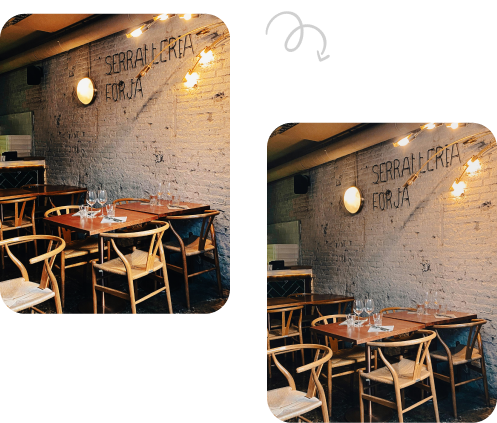In the competitive world of real estate, stunning photos are crucial for attracting buyers. But not every property is camera-ready straight out of the box. That’s where AI-powered real estate photo editing tools come in, like digital paintbrushes that can transform ordinary snaps into extraordinary listings.
Here are the top 10 AI tools to consider for your real estate photo editing needs, catering to different budgets and skill levels:
- Adobe Photoshop:
- Best for: Professional photographers and experienced editors.
- Features: Industry-standard tools for advanced editing, layer control, and masking.
- Pros: Unmatched level of control and flexibility, vast library of plugins and resources.
- Cons: Steeper learning curve, expensive subscription model.
- AI Interior:
- Best for: Virtual staging and interior decoration.
- Features: AI-powered virtual staging technology, extensive library of furniture and decor options.
- Pros: Easy to use, realistic virtual staging results, saves time and expense compared to traditional staging.
- Cons: Can be pricey for frequent use, limited editing options for exterior photos.
- Luminar Neo:
- Best for: AI-powered automatic adjustments and creative editing.
- Features: Powerful AI engine for automatic sky replacements, object removal, and image enhancements.
- Pros: High-quality results, extensive editing tools, AI-powered features save time and effort.
- Cons: Can be pricey, learning curve for beginners.
- Luminar AI:
- Best for: Budget-friendly AI editing with similar features to Luminar Neo.
- Features: AI-powered tools for automatic adjustments, sky replacements, and image enhancements.
- Pros: Affordable compared to Luminar Neo, user-friendly interface, good basic features.
- Cons: Less powerful AI engine than Luminar Neo, limited advanced editing options.
- Adobe Lightroom:
- Best for: Professional photographers and serious amateurs.
- Features: Industry-standard tools for RAW image processing, color correction, and adjustments.
- Pros: Powerful tools for detailed editing, non-destructive edits, integrates with Photoshop.
- Cons: Less beginner-friendly than some other options, requires understanding of photography basics.
- Canva:
- Best for: Beginners and users with basic editing skills.
- Features: User-friendly interface with drag-and-drop functionality, pre-made templates specifically for real estate listings.
- Pros: Easy to learn and use, affordable freemium plan with good basic features.
- Cons: Limited control compared to Photoshop, some advanced features require paid subscription.
- Pixlr:
- Best for: On-the-go editing and quick touch-ups.
- Features: Web-based and mobile app versions, basic editing tools like cropping, resizing, and filters.
- Pros: Free to use, convenient access from any device.
- Cons: Limited features compared to desktop software, not suitable for complex editing tasks.
- Photomatix Pro:
- Best for: Real estate photography with challenging lighting conditions.
- Features: HDR photography software that enhances details and balances exposure.
- Pros: Powerful HDR engine, easy to use for beginners.
- Cons: Not a general-purpose photo editor, limited features for other editing tasks.
- PaintShop Pro:
- Best for: Budget-friendly alternative to Photoshop with similar features.
- Features: Layers, masks, filters, adjustment tools, and a variety of effects.
- Pros: Affordable one-time purchase, user-friendly interface, good range of editing tools.
- Cons: Not as powerful as Photoshop, smaller community and resource pool.
- ImagenAI:
- Best for: Creative editing and artistic effects.
- Features: AI-powered tools for generating artistic effects, text-to-image generation, and image upscaling.
- Pros: Unique and creative possibilities, can add a wow factor to real estate photos.
- Cons: Can be unpredictable and require experimentation, not suitable for traditional photo editing tasks.
Choosing the right AI tool for real estate photo editing depends on your budget, skill level, and editing needs. Try out


